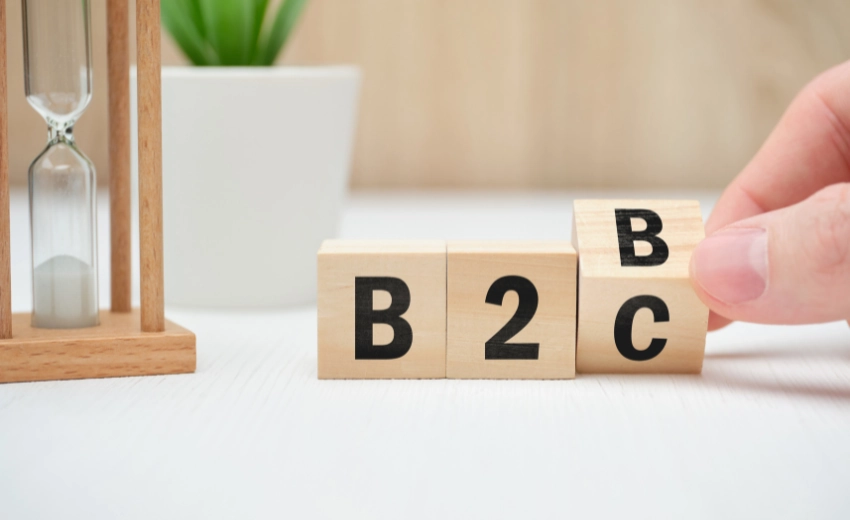Australia’s vibrant startup ecosystem is brimming with innovation, particularly in the B2C (business-to-consumer) sector. From tech-driven solutions to sustainability-focused businesses, the trends shaping the future of a B2C business startup in Australia are worth exploring. This article delves into these emerging trends, offering insights for entrepreneurs aiming to make their mark in this dynamic market.
The Growth of B2C Startups in Australia
The Australian market presents unique opportunities for B2C startups. With a tech-savvy population, high internet penetration, and increasing consumer demand for personalized experiences, entrepreneurs are leveraging these factors to create impactful businesses.
Key Factors Driving Growth:
- Tech Adoption: Consumers are increasingly embracing digital platforms for shopping, services, and entertainment.
- Supportive Ecosystem: Government initiatives, incubators, and accelerators provide resources for startups to thrive.
- Consumer Expectations: Australians value convenience, sustainability, and innovation, driving demand for unique solutions.
Emerging Trends in B2C Business Startups in Australia
1. Sustainable and Eco-Friendly Businesses
Sustainability is at the forefront of consumer priorities in Australia. Startups that incorporate eco-friendly practices and offer sustainable products are gaining traction.
Examples:
- Reusable Packaging: Companies providing eco-conscious packaging solutions.
- Green Products: Startups focusing on biodegradable and sustainable goods, such as reusable straws and organic skincare products.
2. Personalization and Customization
Consumers increasingly expect products and services tailored to their unique preferences. B2C startups in Australia are leveraging data and technology to offer personalized experiences.
Key Innovations:
- AI-driven product recommendations on e-commerce platforms.
- Customizable fashion and home decor items, allowing consumers to design their products.
3. Subscription-Based Models
Subscription-based businesses are booming across various sectors, including food, wellness, and entertainment. These models provide predictable revenue for startups and convenience for consumers.
Popular Examples:
- Meal kit delivery services that cater to dietary preferences.
- Subscription boxes for beauty products, pet supplies, or niche interests.
4. Health and Wellness Focus
The health and wellness industry continues to expand, with startups addressing both physical and mental well-being. The pandemic further highlighted the importance of accessible health solutions.
Areas of Innovation:
- Fitness tech, such as apps and wearables for tracking health goals.
- Mental health platforms offering online therapy and mindfulness tools.
5. Integration of Artificial Intelligence (AI)
AI is revolutionizing how B2C businesses operate. From chatbots enhancing customer service to predictive analytics optimizing inventory, startups are harnessing AI’s potential to improve efficiency and customer satisfaction.
AI Applications:
- Virtual assistants that guide customers through shopping experiences.
- Smart algorithms predicting consumer behavior for targeted marketing campaigns.
6. Focus on Local Experiences
Australian consumers value local products and experiences. Startups emphasizing homegrown goods and services are building strong connections with their audiences.
Examples:
- Online platforms showcasing Australian-made crafts and artisanal products.
- Tourism startups offering unique local experiences, such as guided wildlife tours or culinary adventures.
Challenges Facing B2C Startups in Australia
While the opportunities are abundant, B2C startups in Australia also face challenges:
1. High Competition
The B2C market is competitive, with established players and new entrants vying for consumer attention.
Solution:
Focus on a niche market or unique value proposition to differentiate your startup.
2. Logistics and Distribution
Australia’s vast geography can complicate logistics, especially for startups aiming to serve remote areas.
Solution:
Partner with reliable logistics providers and explore innovative delivery solutions, such as drones or local distribution hubs.
3. Funding and Resources
Securing funding is often a hurdle for startups, particularly in the early stages.
Solution:
Take advantage of government grants, pitch competitions, and venture capital opportunities to secure necessary resources.
Strategies for Launching a Successful B2C Business Startup in Australia
1. Conduct Thorough Market Research
Understanding your target audience is crucial. Identify their preferences, pain points, and behaviors to create products or services that resonate.
2. Build a Strong Online Presence
A robust online presence is essential for B2C businesses. Invest in a user-friendly website, engaging social media, and effective digital marketing strategies.
Key Areas to Focus On:
- SEO to improve your website’s visibility in search results.
- Content marketing to establish authority and attract customers.
- Social media campaigns to drive engagement and brand awareness.
3. Leverage Technology
Incorporate advanced tools to streamline operations and enhance customer experiences. From CRM systems to inventory management software, technology can boost efficiency and scalability.
4. Prioritize Customer Experience
Exceptional customer service can set your startup apart. Engage with your audience, address concerns promptly, and offer personalized interactions.
5. Collaborate with Partners
Strategic partnerships with local businesses, influencers, or complementary brands can expand your reach and credibility.
Success Stories of B2C Startups in Australia
1. Canva
Canva, an Australian graphic design platform, has revolutionized how individuals and businesses create visual content. Their intuitive interface and extensive template library have made design accessible to everyone.
2. Who Gives a Crap
This eco-friendly toilet paper company donates 50% of profits to build toilets in developing countries. Their sustainable approach and quirky branding have won over environmentally-conscious consumers.
3. Koala
Koala disrupted the furniture industry with its high-quality mattresses and sofas, delivered quickly in compact packaging. Their focus on sustainability and customer satisfaction has driven immense success.
The Future of B2C Business Startups in Australia
The future looks bright for B2C startups in Australia, with technology, sustainability, and personalization leading the way. As consumer preferences evolve, businesses that remain agile and innovative will thrive.
Emerging Opportunities:
- Integration of augmented reality (AR) for virtual try-ons and immersive shopping experiences.
- Expansion of local marketplaces connecting consumers with small-scale producers.
- Growth in health-tech solutions addressing preventative care and wellness.
Conclusion
A B2C business startup in Australia offers unparalleled opportunities for entrepreneurs ready to innovate and adapt. By understanding market trends, overcoming challenges, and leveraging available resources, startups can carve out a niche in this dynamic environment. Whether you’re venturing into sustainability, health, or tech-driven solutions, the Australian market is ripe for disruption and success.

